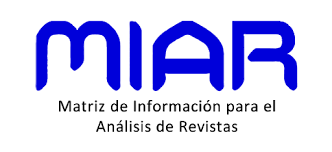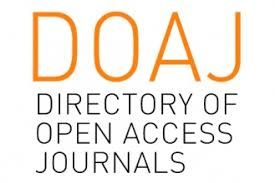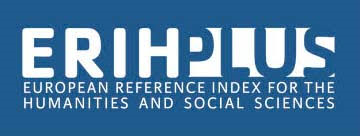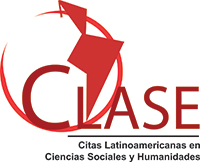Para além da paranoia epistêmica
Graham Harman e a Teoria Social Orientada ao Objeto (T. S. O. O)
DOI:
https://doi.org/10.15448/1984-6746.2023.1.42711Palavras-chave:
Ontologia Orientada ao Objeto, Graham Harman, Teoria Social, pós-humanismo, Teoria Social Orientada ao ObjetoResumo
A Ontologia Orientada ao Objeto (OOO) é uma linha filosófica contemporânea muito difundida no universo acadêmico, com vários debates acalorados ao longo do globo, mas ainda bastante tímida quando o assunto é o campo da Teoria Social. O objetivo desse ensaio é compreender esse ponto de cruzamento, muitas vezes até de tensão, tomando como ponto de partida as ideias de Graham Harman e suas implicações epistêmico-ontológicas. Como resultado, existe nesse nosso horizonte investigativo uma nova atmosfera teórica, uma nova forma de mergulhar no campo das ciências humanas e sociais, o que vai ser chamado aqui de Teoria Social Orientada ao Objeto (T. S. O. O). Quais os desdobramentos de uma T. S. O. O? Quais são suas vantagens diante de outras tradições já existentes? Essa e outras perguntas vão ser respondidas ao longo destas páginas, pelo menos, enquanto um breve aperitivo.
Downloads
Referências
ADORNO, Theodor. Introduction to Sociology. Califórnia: Stanford University Press, 2002.
ALEXANDER, Jeffrey C. O novo movimento teórico. Revista Brasileira de Ciências Sociais, [S. l.], v. 2, n. 4, p. 5-28, jun. 1987. Disponível em: http://anpocs.com/images/stories/RBCS/04/rbcs04_01.pdf. Acesso em: 6 dez. 2022.
ASSIS, Machado de. O alienista. São Paulo: FTD, 1994.
BERTHOLD-BOND, Daniel. Freud’s Critique of Philosophy. Metaphilosophy, [S. l.], v. 20, n. 3/4, p. 274-294, 1989. Disponível em: https://philpapers.org/rec/DANFCO-2.Acesso em: 20 dez. 2022. DOI: https://doi.org/10.1111/j.1467-9973.1989.tb00428.x
BLOOM, Harold. The Western Canon: The books and school of the ages. A Florida: Harcourt Brace, 1994.
BOURDIEU, Pierre. Language and Symbolic Power. Cambridge: Polity Press, 1991.
BRYANT, Levi R. Democracy of Objects. London: Open Humanities Press, 2011. DOI: https://doi.org/10.3998/ohp.9750134.0001.001
BUTLER, Judith. Gender Trouble: Feminism and the Subversion of Identity. New York: Routledged, 1999.
CASSIRER, Ernst. The Philosophy of the Iluminism. Princeton: Princeton University Press, 2009.
DELANDA, Manuel; HARMAN, Graham. The Rise of Realism. Cambridge: Polity Press, 2017.
DELANDA, Manuel. A New Philosophy of Society: Assemblage Theory and Social Complexity. Fareham: Ashford Colour Press Ltd., 2012.
DELEUZE, Gilles. A imagem-tempo. São Paulo: Brasiliense, 1985.
DERRIDA, Jacques. Estrutura, Sinal, e jogo no discurso das ciências humanas. In: DERRIDA, Jacques. Escrita e Diferença. Chicago: Universidade de Chicago, 1978. p. 278-294.
DURKHEIM, Emile. The Rules of Sociological Method. Nova Iorque: Free Press, 1982. DOI: https://doi.org/10.1007/978-1-349-16939-9
FOUCAULT, Michel. Discipline and Punishment. The Birth of Prison. New York: Vintage Books, 1995.
FREUD, Sigmund. Civilization and its Discontents. New York: W. W. Norton & Company, 2010.
FREUND, Julien. The Sociology of Marx Weber. New York: Penguin Random House Inc, 1968.
GARFINKEL, Harold. Studies in Ethnomethodology. Rio Sela Superior: Prentice Hall, 1967.
GIDDENS, Anthony. The Constitution of Society: Outline of the Theory of Structuration. Berkeley: Imprensa da Universidade da Califórnia, 1986.
GASSET, Ortega Y. Man and People. New York: W. W. Norton and Company, 1963.
HABERMAS, Jürgen. Truth and Justification. Cambridge: Polity Press, 2003.
HARAWAY, Donna. When the Species Meet. Minneapolis: University of Minnesota Press, 2008.
HARMAN, Graham. Immaterialism: Objects and Social Theory. Cambridge: Polity Press, 2017.
HARMAN, Graham. On Vicarious Causation. In: MACKAY, Robin (ed.). Collapse: Philosophical Research. Falmouth: Urbanomic, 2007. p. 187-221.
HARMAN, Graham. The Quadruple Object. United Kingdom: Zero Press, 2011.
HARMAN, Graham. Weird Realism: Lovecraft and Philosophy. United Kingdom: Zero Press, 2012.
HOLBRAAD, Martin; PEDERSEN, Morten Axel. The Ontological Turn: Na Anthropological Exposition. Cambridge: University Press, 2017. DOI: https://doi.org/10.1017/9781316218907
HOLOWCHAK, M. Andrew. Freud on Philosophy and Philosophers Patching the gaps in the universe with nightcaps and dressing-gown tatters. International Forum of Psychoanalysis, London, v. 22, n. 3, p.149-160, 2013. Disponível em: https://eurekamag.com/research/036/474/036474173.php. Acesso em: 20 dez. 2022. DOI: https://doi.org/10.1080/0803706X.2010.532507
INGOLD, Tim. Being Alive: Essays on Movement, Knowledge and Description. Abingdon: Routledge, 2011. DOI: https://doi.org/10.4324/9780203818336
LATOUR, Bruno. An inquiry into modes of existence: an anthropology of the moderns. Cambridge: Harvard University Press, 2013.
LATOUR, Bruno. Reassembling the Social: Na Introduction to Actor. Oxford: Oxford University Press, 2005.
LATOUR, Bruno. The Pasteurization of France. Cambridge: University de Harvard Press, 1984.
LATOUR, Bruno. Laboratory Life: The Construction of Scientific Facts. Princeton: Princeton University Press, 1986. DOI: https://doi.org/10.1515/9781400820412
LATOUR, Bruno. Down to Earth: Politics in the New Climatic Regime. Cambridge: Polity Press. 2017
LATOUR, Bruno. We have never been Modern. Cambridge: University of Harvard Press, 1991.
LATOUR, Bruno. On Inter-objectivity. Mind, Culture, and Activity, [S. l.], v. 3, n. 4, p. 228-245, 1996. Disponível em: http://www.bruno-latour.fr/sites/default/files/63-INTEROBJECTS-GB.pdf. Acesso em: 20 dez. 2022. DOI: https://doi.org/10.1207/s15327884mca0304_2
LATOUR, Bruno; Harman, Graham; Erdélyi, Peter. The Prince and the Wolf: Latour e Harman in LSE. United Kingdom: Zero Press, 2011.
LOVECRAFT, Howard Phillips. The call of Cthulhu. New Jersey: Freeditorial, 2014
LUKÁCS, Georg. Writer and Critics, and other Essays. London: Merlin Press, 1970.
MASSUMI, Brian. What the animals teach us about politics? US: Duke University Press. 2014. DOI: https://doi.org/10.1515/9780822376057
MARX, Karl & Engels, Friedrich. Communist Manifesto. New York: Appleton-Century-Crofts, Inc. 1955.
MEILLASSOUX, Quentin. Time Without Becoming. London: University of Middlesex, 2013.
MEILLASSOUX, Quentin. After Finitude. London: Continuum, 2008. DOI: https://doi.org/10.5040/9781350252059
MERLEAU-PONTY, Maurice. The Primacy of Perception: And Other Essays on Phenomenological Psychology, the Philosophy of Art, History and Politics. Illinois: Northwestern University Press, 1964.
MOL, Annemarie; LAW, John. Regions, Networks and Fluids: Anaemia and Social Topology. Social Studies of Science, London, v. 24, p. 641-671, 1994. Disponível em: https://journals.sagepub.com/doi/10.1177/030631279402400402. Acesso em: 20 dez. 2022. DOI: https://doi.org/10.1177/030631279402400402
PINHO, Thiago de Araujo. Descentrando uma linguagem: Deleuze, Latour e a Terceira Revolução Copernicana nas Ciências Sociais, 2018.
RORTY, Richard. Pragmatismo: a filosofia da criação e da mudança. Porto Alegre: Editora Pocket: 2000.
SAVRANSKY, Martin. Around the day in Eighty Worlds. Durham: UFMG, 2021. DOI: https://doi.org/10.1215/9781478021438
SPARROW, Tom. The End of Phenomenology. Cambridge: University Press, 2014. DOI: https://doi.org/10.1515/9780748684847
STENGERS, Isabelle. The Invention of Modern Science. Minneapolis: University of Minnesota Press, 2000.
MORTON, Timothy. Hyperobject: Philosophy and Ecology after the end of the World. London: University of Minnesota Press, 2013.
WHITEHEAD, Alfred North. Process and Reality: An Essay In Cosmology. New York: The Free Press, 1978.
VANDENDERGUE, Fréderic. What is decisive about Critical Realism? Abingdon: Routledge, 2013.
ẐIẐEK, Slavoj. Enjoy your symptom. United Kingdom: Routledge, 1992.
ẐIẐEK, Slavoj. How to read Lacan? New York: W. W. Norton & Company, 2006.
Downloads
Publicado
Como Citar
Edição
Seção
Licença
Copyright (c) 2023 Veritas (Porto Alegre)

Este trabalho está licenciado sob uma licença Creative Commons Attribution 4.0 International License.
Direitos Autorais
A submissão de originais para a Revista Veritas implica na transferência, pelos autores, dos direitos de publicação. Os direitos autorais para os artigos publicados nesta revista são do autor, com direitos da revista sobre a primeira publicação. Os autores somente poderão utilizar os mesmos resultados em outras publicações indicando claramente a Revista Veritas como o meio da publicação original.
Licença Creative Commons
Exceto onde especificado diferentemente, aplicam-se à matéria publicada neste periódico os termos de uma licença Creative Commons Atribuição 4.0 Internacional, que permite o uso irrestrito, a distribuição e a reprodução em qualquer meio desde que a publicação original seja corretamente citada. Copyright: © 2006-2020 EDIPUCRS



















